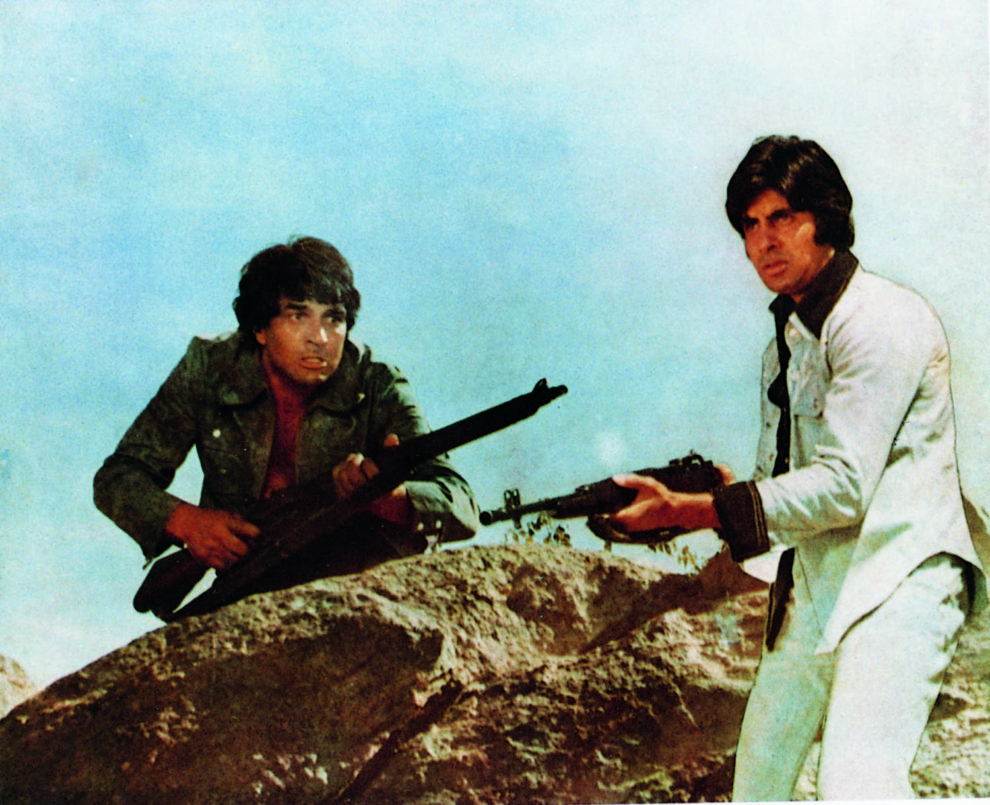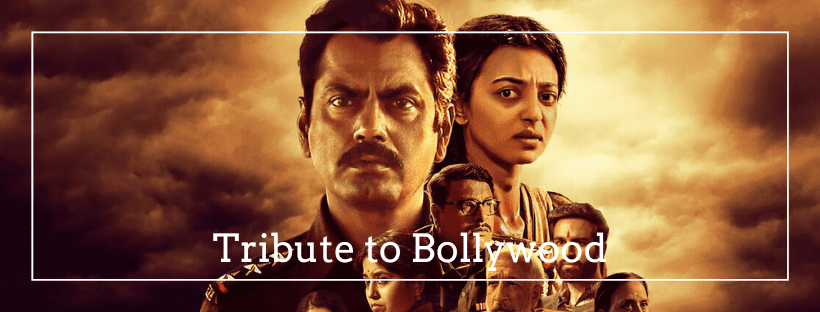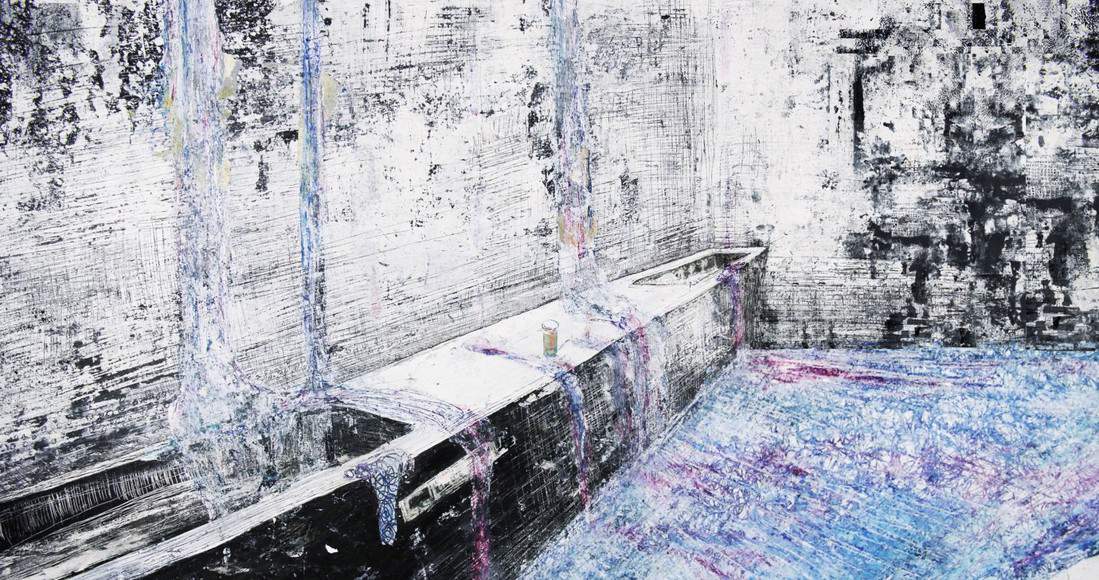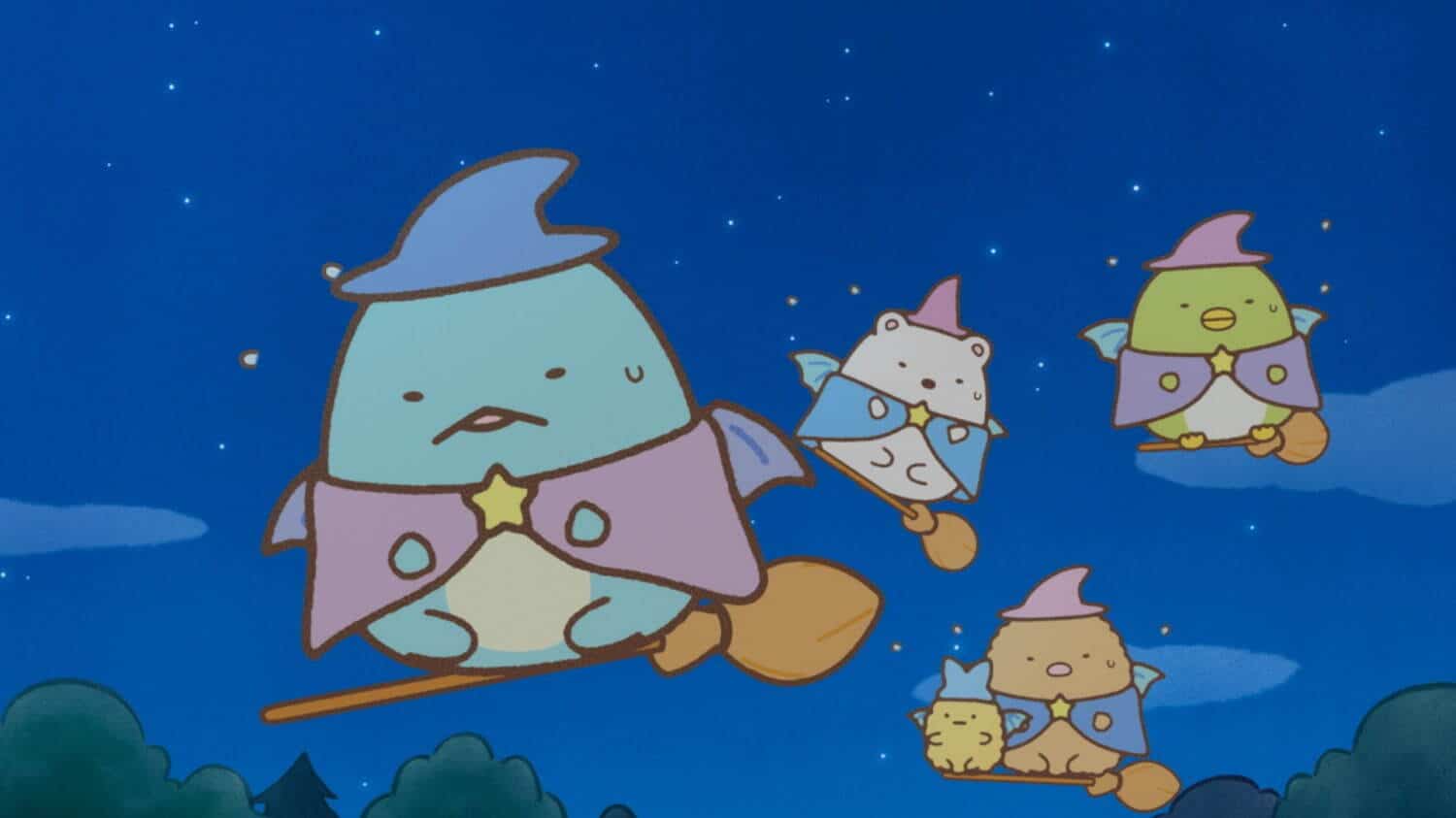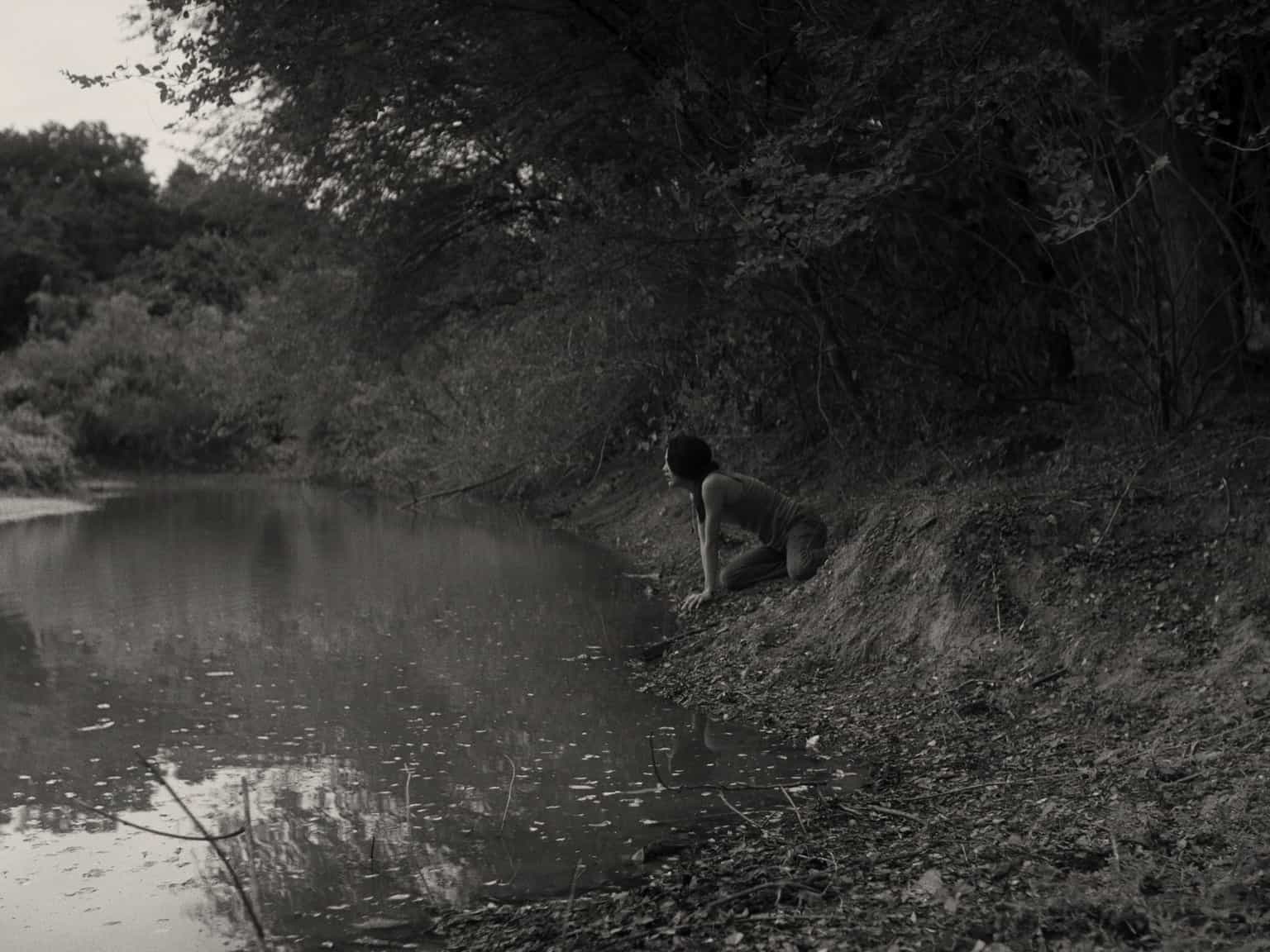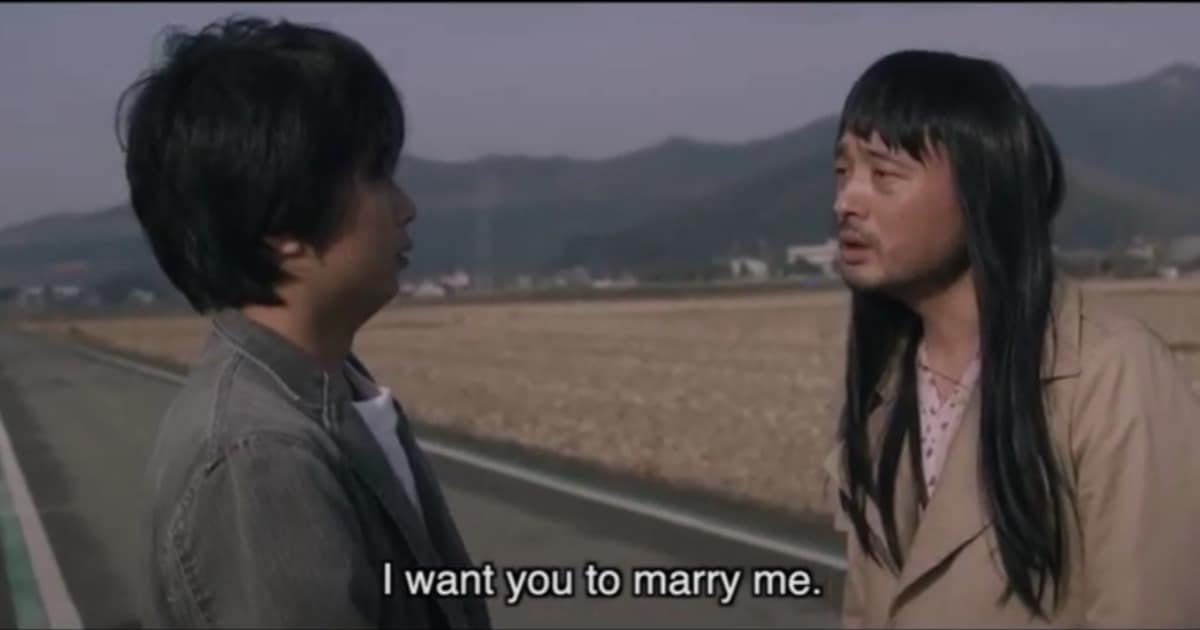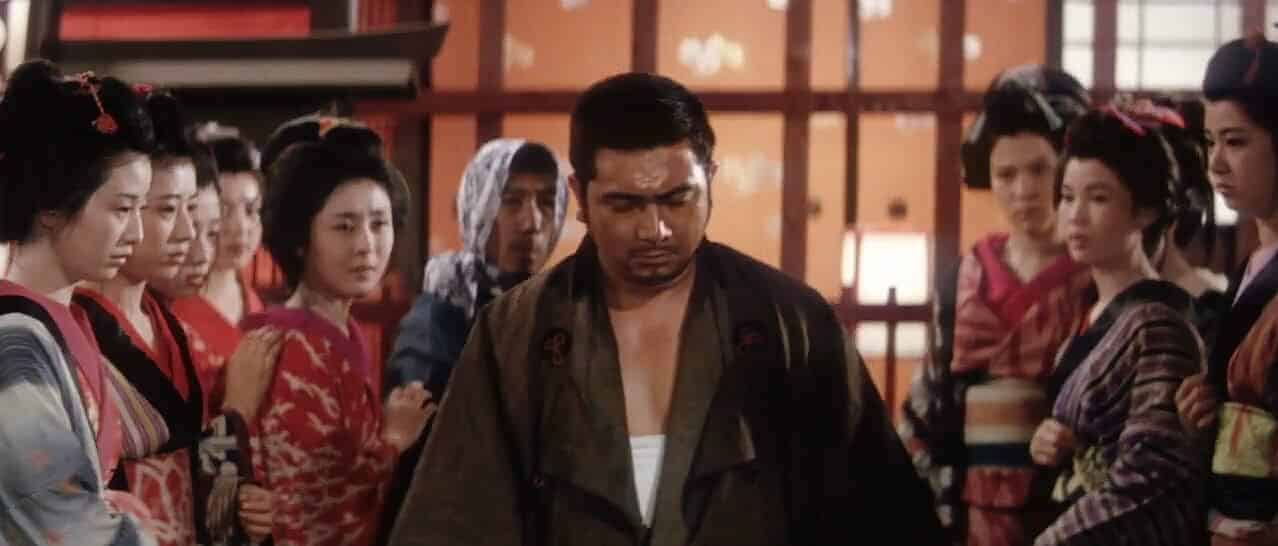Considered one of the greatest and most influential Indian films of all time (just a glance at the Wikipedia page about the film is enough) “Sholay” is a true masala film, a true epic, and a truly impressive production that has stood the test of time even now, almost 50 years after its initial release.
The film begins with Thakur, a police inspector, tasking a man with finding two small-time crooks, Jai and Veeru, who had helped him in the past, proving both their fighting abilities and their integrity. The focus switches on the two and their time in prison and their escape, until the three protagonists are finally united in Thakur's village in Ramgarh. The now retired inspector asks them to capture a notorious dacoit named Gabbar Singh, who has been terrorizing the area for years, promising them an additional reward of ₹20,000, on top of the ₹50,000 of the bounty for his head. The two reluctantly agree, and even have some successes with the men of Gabbar, while Veeru also falls for Basanti, a rather talkative woman whom everyone calls “Chatterbox”. A bit later, something similar happens to Jai, with Thakur's widowed daughter-in-law Radha. At the same time, though, Gabbar still has a lot of tricks up his sleeve and a lot of men to throw at the heroic duo, while Thakur eventually reveals his reasons for capturing the outlaw. Expectedly, a showdown is inevitable.
“Sholay” is a mashup if I ever watched one. Elements of western, musical, comedy, drama, martial arts, romance and exploitation are omnipresent in the movie, while the influences from Kurosawa's “Seven Samurai”, Sergio Leone's westerns and Shaw Brothers type of action are quite to easy to spot, while there is even a character, the jailer, who is styled after Hitler. Furthermore, the characters are all larger-than-life types, even though their attitudes and overall style differ significantly.
In that fashion, Dharmendra portrays Veeru as the smooth talker, life-of-the-party type of guy, while Amitabh Bachchan as Jai is the smart and cool one, who steals the show with his well-placed, and quite on-target one-liners. Hema Malini as Basanti is a source of joy and annoyance at the same time, while her romance with Veeru one of the most entertaining aspects of the movie. Sanjeev Kumar as Thakur Baldev Singh is imposing with his deep voice, constantly exhibiting an ominous heaviness of character that also showcases his personal drama. Amjad Khan as Gabbar Singh is the quintessential villain, being cruel, sadistic, but rather intelligent and a great fighter also, essentially the personification of pure evil and the perfect adversary of the three “good guys”. The ways the aforementioned interact in friendship, love and hate benefits the most by both the characterization and the acting, in two more great traits of the movie.
The production is also top notch, with the action scenes being as many as they are impressive. The initial one in the train, the many where Gabbar Singh and his men fight Jai and Veeru, and particularly the finale, which fosters both dramatic and Shaw-brothers type of action, being the highlight of the approach in that regard. Mohammed Ali and Gerry Crampton's stunt and action coordination respectively is impressive, with the same applying to the visual effects, with the many explosions especially being outstanding. DP Dwarka Divecha captures the aforementioned and the many different settings the film takes place in with artistry, focusing on the charisma of his protagonists, the artfulness of the action scenes, and the impressive locations found within the movie. M.S. Shinde's editing results in a rather fast pace that suits the aesthetics of the movie to perfection, while the many and lengthy flashbacks are well placed. The also many and lengthy singing and dancing scenes can be annoying, particularly to the non-Hindi audience, but in no way do they hamper the scores of entertainment the movie offers.
Regarding context, there are some comments about male friendship, and how love, greed, revenge and hate can all function as driving forces in the lives of people. The focus, however, is almost exclusively on entertainment, and the story emerges as nonsensical a number of times and, essentially, as a whole.
“Sholay” is like a tribute to cinema as a form of entertainment, which is the main reason it remains so fun to watch, even after so many years.


